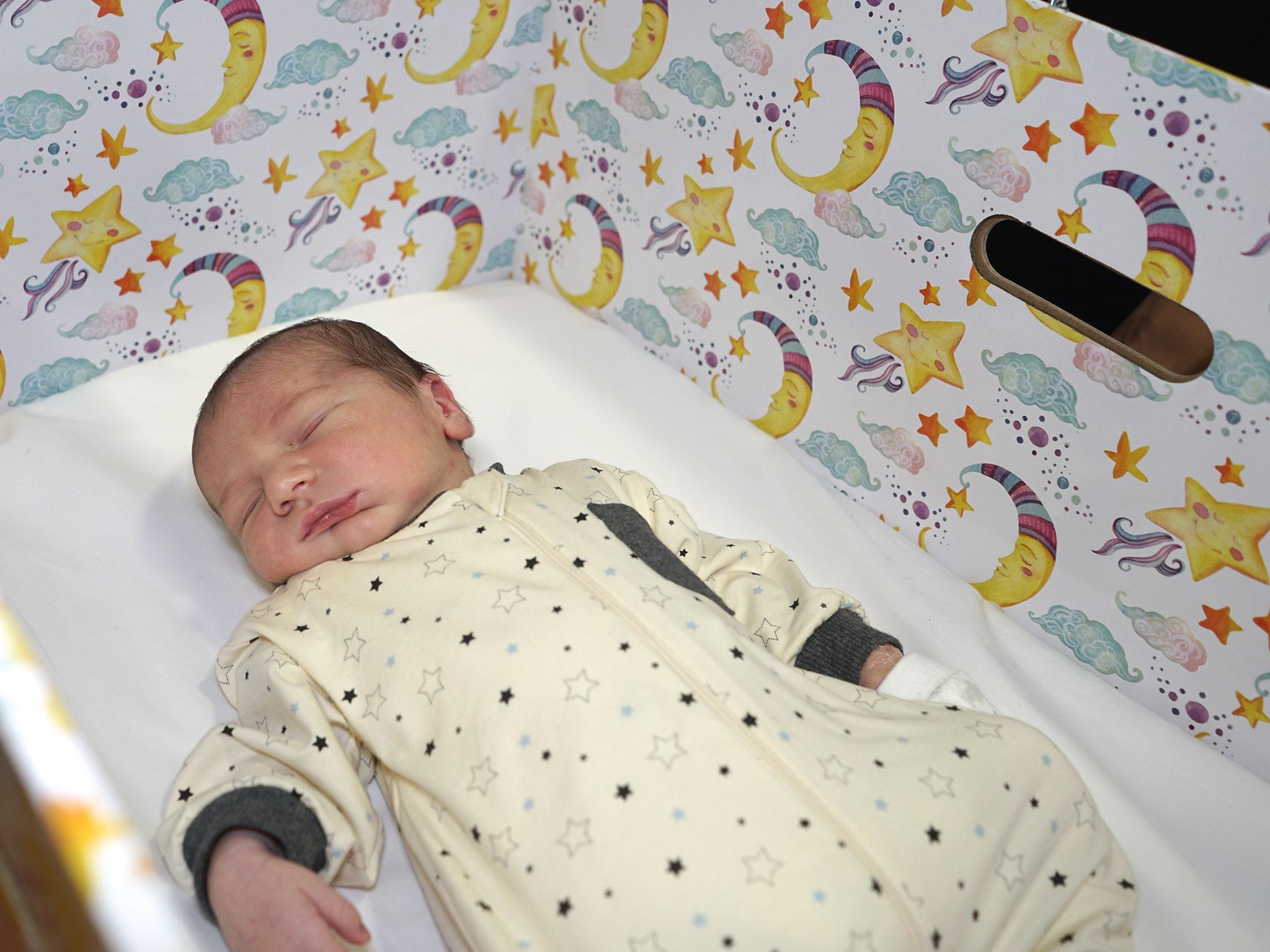Baby box scheme could save infants’ lives by reducing risk of dangerous bed-sharing, study finds
US researchers say baby box scheme reduces bed sharing rates by a quarter

Your support helps us to tell the story
From reproductive rights to climate change to Big Tech, The Independent is on the ground when the story is developing. Whether it's investigating the financials of Elon Musk's pro-Trump PAC or producing our latest documentary, 'The A Word', which shines a light on the American women fighting for reproductive rights, we know how important it is to parse out the facts from the messaging.
At such a critical moment in US history, we need reporters on the ground. Your donation allows us to keep sending journalists to speak to both sides of the story.
The Independent is trusted by Americans across the entire political spectrum. And unlike many other quality news outlets, we choose not to lock Americans out of our reporting and analysis with paywalls. We believe quality journalism should be available to everyone, paid for by those who can afford it.
Your support makes all the difference.Giving new parents a box for their children to sleep in could save babies’ lives, a new study has found.
Handing out ‘baby boxes’ – cardboard containers, lined with bedding, that contain supplies for newborns – and educating parents about the risks of sharing a bed with their babies reduced rates of this dangerous sleeping arrangement, said US researchers.
Previous research suggests bed sharing increases the likelihood of sudden infant death syndrome fivefold, with the risk even higher for mother and fathers who smoke, drink or take drugs.
Scientists at Temple University Hospital in Philadelphia said face to face information sessions and the distribution of baby boxes had reduced bed-sharing rates by 25 per cent during the first eight days of life.
The research team working in North Philadelphia, an area with high levels of deprivation and one of America’s highest infant mortality rates, gathered data from 2,763 new mothers as part of the study.
Their baby box scheme was found to reduce bed sharing rates by a quarter overall, and by 50 per cent for exclusively breastfed infants, who are more likely to share a bed with their parents.
Baby boxes have been used for 75 years in Finland, where the government provides one for every parent-to-be.
The cartons contain clothes, sheets and toys, as well as providing a safe place to sleep. The initiative has been lauded as one reason for the Nordic country’s extremely low infant mortality rate.
Similar programmes have been launched by the Baby Box Company at 13 hospitals in the UK and Ireland, where new parents receive a free baby box after watching a series of online videos about infant safety.
“The education is the most important part of it. The baby box itself gives babies a safe place to sleep for families who can’t afford a cot,” a spokesperson for the social enterprise told The Independent.
“The size of the box also prevents babies from rolling onto their stomachs, which is a factor involved in cot death.”
There were 2,578 infant deaths in England and Wales in 2015 – a slight increase since the year before, but significantly fewer than the 6,141 in 1985.
Sudden infant death syndrome (SIDS), also known as cot death, is rare but the risk can be lowered by placing a baby to sleep on its back, not exposing them to cigarette smoke or allowing them to overheat.
The new study, presented at the Pediatric Academic Societies Meeting in San Francisco, tested the efficacy of a scheme in which new parents received advice on how to sleep their babies in person by registered nurses supervised by a paediatrician.
They were given a baby box with a foam mattress, cotton fitted sheet and baby supplies, and a summary of the teaching points on a laminated door hanger, and also watched a three-minute-long video on how the box should be used.
Join our commenting forum
Join thought-provoking conversations, follow other Independent readers and see their replies
Comments